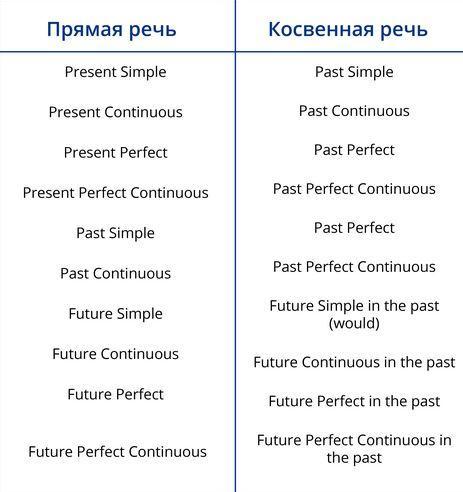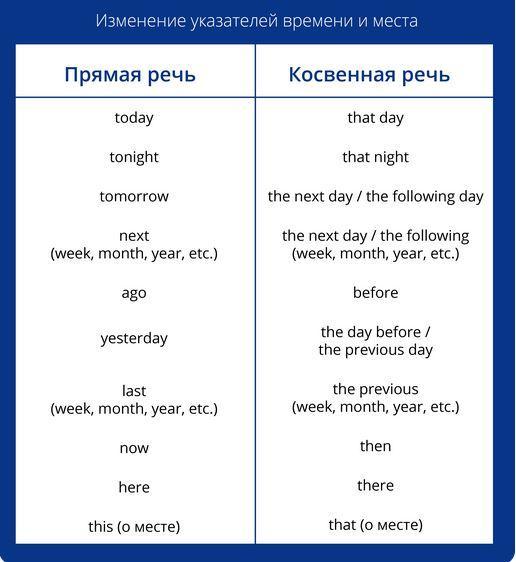Turn the questions into Reported Speech.
1. “Are you going to let me tell this?” she questioned.
2. “Do you really mean that, sweet?” she said looking at him curiously.
3. “What happened to you?” he asked when we got home.
4. “Have you got any paper handkerchiefs?” she asked.
5. “Can you open this tin for me?” she asked.
6. “Can you lend me five pounds till Monday?” Gerry asked Marta.
7. “How much does a tube of toothpaste cost?” a customer asked the sales-man.
8. “What kind of pictures does she sell?” he questioned.
9. “When did you start working on this project?” she asked.
10. “Would you like anything more to eat or drink?” he asked.
11. “Could I borrow your car this afternoon?” he asked very cautiously.
12. “Have you got anything to eat? I’m getting hungry,” she said.
13. “Italians drink more wine than English people, don’t they?” he questioned.
14. He saw a cloud of smoke and asked, “What is burning?”
15. The policeman asked me, “Where did you lose your wallet?”
16. “Who has been using my typewriter?” said my father.
17. “How much do you think it will cost?” he asked.
18. “Have you been here long?” the other students asked him.
19. “What are you going to do with your old car?” I asked him.
20. “Did any of you actually see the accident happen?” said the policeman.
Ответы
Ответ:
1. She asked me if I was going to let her tell that.
2. She asked looking at him curiously if he really meant that.
3. When we got home, he asked what had happened to us.
4. She asked if I had any paper handkerchiefs.
5. She asked if I could open that tin for her.
6. Gerry asked Marta if she could lend him five pounds till Monday.
7. A customer asked the sales-man how much a tube of toothpaste cost.
8. He asked what kind of pictures she sold.
9. She asked when I had started working on that project.
10. He asked if I would like anything more to eat or drink.
11. He asked very cautiously if he could borrow my car that afternoon.
12. She asked if I had anything to eat and said she was getting hungry.
13. He said that Italians drank more wine than English people and assumed that they did.
14. He saw a cloud of smoke and asked what was burning.
15. The policeman asked me where I had lost my wallet.
16. My father asked who had been using his typewriter.
17. Hе asked how much I thought it would cost.
18. The other students asked him if he had been there long.
19. I asked him what he was going to do with his old car.
20. The policeman asked if any of us actually had seen the accident happen.
Объяснение:
Косвенная речь передается не слово в слово, как прямая, а с использованием придаточных предложений. При этом кавычки и запятая уже не употребляются.
В главной части предложения временная форма глагола сохраняется в неизменном виде, а в придаточной части работает правило согласования времен: при переводе прямой речи в косвенную время в предложении меняется на то, которое ему предшествует.
См. изменение времен и заменяемые обстоятельства времени в таблицах во вложении.
#SPJ1

